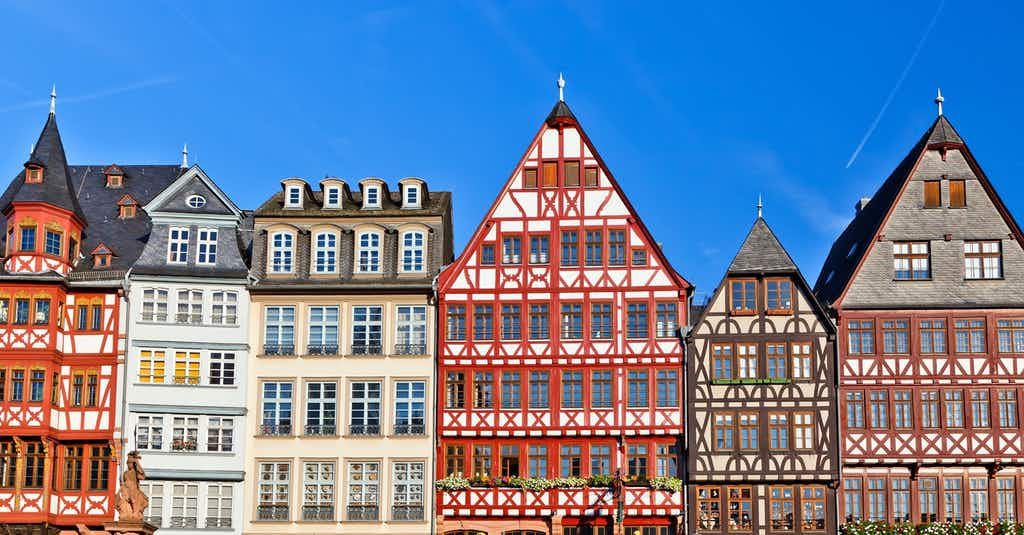Hotline: 0961.653.368 | 0928.693.368
Germany Overview
Germany, officially the Federal Republic of Germany, is a country in the western region of Central Europe. It is the second-most populous country in Europe after Russia, and the most populous member state of the European Union.
Whereas today, Germany is home to 84.4 million people, including Germans and minorities of other nationalities, that respect each other and together make Germany a country of values, unique celebrations, and customs.
One of Europe’s largest countries, Germany encompasses a wide variety of landscapes: the tall, sheer mountains of the south; the sandy, rolling plains of the north; the forested hills of the urbanized west; and the plains of the agricultural east.
Germany is situated between the Baltic and North Seas to the north, and the Alps to the south. Its 16 constituent states are bordered by Denmark to the north, Poland and the Czech Republic to the east, Austria and Switzerland to the south, and France, Luxembourg, Belgium, and the Netherlands to the west. The nation’s capital and most populous city is Berlin, and its main financial center is Frankfurt; the largest urban area is the Ruhr.

Economy of Germany
The economy of Germany is a highly developed social market economy. It has the largest national economy in Europe, the third largest by nominal GDP in the world, and fifth by GDP (PPP)
The German constitution, the Basic Law (Grundgesetz), guarantees the right to own property, freedom of movement, free choice of occupation, freedom of association, and equality before the law. However, the constitution modified the operation of the unfettered free market by means of its “social market economy”.
In 2016, Germany recorded the highest trade surplus in the world, worth $310 billion. This economic result made it the biggest capital exporter globally. Germany is one of the largest exporters globally with $1810.93 billion worth of goods and services exported in 2019.
The service sector contributes around 70% of the total GDP, industry 29.1%, and agriculture 0.9%. Exports accounted for 41% of national output. The top 10 exports of Germany are vehicles, machinery, chemical goods, electronic products, electrical equipment, pharmaceuticals, transport equipment, basic metals, food products, and rubber and plastics. The economy of Germany is the largest manufacturing economy in Europe, and it is less likely to be affected by a financial downturn.

Education System
The quality of German education is world-renowned for a reason. It’s well-organized and designed to be highly accessible to all students allowing them to continue studying up to the university level regardless of a family’s finances.
All German states offer the same school systems and education system. German public schools – no matter if they are elementary schools, secondary schools, or vocational schools – generally do not require any tuition fees.
This article will give you an overview of the German standards of education, the organization of the school system, the subjects taught, grading systems, and more.
Quality of life in Germany
Germany performs well in many dimensions of well-being relative to other countries in the Better Life Index. Germany outperforms the average in jobs, work-life balance, education, environmental quality, safety, civic engagement and life satisfaction.
German cities consistently rank in the top 25 in the world in the Mercer quality of life survey, which evaluates living conditions for expatriates.
Good education and skills are important requisites for finding a job. In Germany, 86% of adults aged 25-64 have completed upper secondary education.
What Languages Are Spoken In Germany?
The official language of Germany is German, with over 95 percent of the country speaking Standard German or a dialect of German as their first language. Most of students and knowledge people who can use good at english in use.
the most commonly spoken languages at home were:
- German (90% of households)
- Turkish (2% of households)
- Arabic (1% of households)
- Other (6% of households)
German Culture: Facts, Customs and Traditions
The people, language, and traditions are what make the German culture unique. It has had a key role in the history of Europe, and not only. English speakers call it Germany, Germans themselves call it Deutschland. Germany is known as the country of poets and thinkers.
German culture has been influenced and shaped throughout Germany ‘s rich history once as an important part of The Holy Roman Empire, and later on as one of the most stable economies in the world.
In Germany, a percentage of 65% to 70% of people identify as Christians, approx. 30% of them as Catholics, and around 30% as protestants. There is also a Muslim minority of 2 to 4%. A number as high as 35% do not identify themselves as having any religion or belonging other than Christianity or Muslim.
There are a lot of stereotypes about Germans, such as that they drink a lot of beer (which is true), they are hardworking and punctual (which is also true), and that the rate of unemployment in Germany is very low, with 5.7% of the labor force unemployed as of 2023 (true again)

There is estimated that around 27,000,000 Germans are members of a sports club, and 12,000,000 pursue such an activity individually, which shows how keen Germans are on sports. The Bundesliga, which is a German football championship, attracts the second-highest average attendance of any professional sports league in the world.
Cuisine and Culture in Germany
Germans truly enjoy indulging in rich and hearty cuisine. However, what constitutes a traditional meal can vary from one region to another. Germans are famous for their love of beer, penchant for sausages, and the wide range of delicious bread they consume.
Germans drink a lot of beer, eat sausages and make bread of different tastes. That is not only a stereotype but a true fact. It is estimated that the average German consumes around 140 liters of beer per year.
Wurst, which means sausages in German, is an important part of German cuisine, which is made of pork, beef, or veal and flavored differently. As for bread, there is a long tradition of bread-baking which Germans take pride in.
There is bread with different shapes, black and white, with different tastes and names, sweet, soft, and plain, with all types of seeds you could think of.
Political system of Germany
The country of Germany is a Federal Republic: it includes 16 federated states, that have political autonomy as to the domestic policies, while remaining within the political and legal borders of the state or Federation per se. Thus, the country’s political system includes the federal (or state) and regional levels, each of which has their own system of legislative, executive and judicial powers. Yet, the federal law takes precedence over the law of the federated states.
Germany is a democratic state having advanced legal and social systems. The country’s Basic Law is the German Constitution, which shapes the basis and structure of the country’s legal and political systems, determining the basic rights of people living in Germany; these basic rights shall not be violated by any political body or person.
Table 1. Political system and structure of Germany in brief
| Political system | |
|---|---|
| Political regime | Democracy |
| Form of government | Parliamentary Republic |
| Form of state structure | Federation |
| State description | Rule of law and social welfare state |
| German economic system | Socially oriented market economy |
| Basic Law | German Constitution |
| Tiers of authority | Federal and regional (the one of the federated states) |
| Major political parties | CDU, CSU, SPD, AfD, FDP, Die Linke (the Left-Wing Party), Die Grünen (the Greens) |
| Federal level | |
| Head of state | Federal President |
| Main legislative bodies | The Bundestag (the Federal Parliament) and the Bundesrat (the Federal Council) |
| The Bundestag composition | Deputies or the Bundestag members |
| The Bundesrat composition | Members of the government of each federated state |
| Main executive body | Federal Government |
| The Government composition | Federal Chancellor and Ministers |
| Head of the government | Federal Chancellor |
| Major Judiciary | Сonstitutional Сourt and other federal courts |
| Federated states level | |
| Form of government | Parliamentary Republic |
| Basic Laws | Constitutions of the federated states |
| Main legislative bodies | Landtags or the federated states parliaments |
| Main executive bodies | Federated states governments. |
| Major Judiciary | Regional (federated states) courts of first instance |



